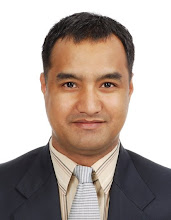Jeevan Baniya
In my recent informal talk with one Danish scholar currently working in Nepal posed a very critical question: what does it mean by representation? Who represent the citizens? While asking these questions, he was actually guiding me for my research work. After about fourty minutes of talk, I waved my hands for god-bye. While my way home the very striking questions kept knocking doors and windows of my half-asleep psyche. Then I began dig down in the situation of Nepal to get them better answered.
Revisiting the electrifying result in the part of UCPN-Maoists and some regional political parties in CA election, which of course, for the first time in the history, ensured more equal representation in Nepal’s politics, I contemplated whether this is a true representation. Out of the contemplation, I got more bemused like many people of Nepal might have been.
Soon after the CA result, I had assumed that there is a historic shift in the power at least in the political spectrum, which may lead the country to the direction for change. But unfortunately, the dominant political leaders from main political parties then highly engaged in creating political black holes that has now created a complex matrix of mess that reminds of what one Indian scholar said ‘Politics is a Dirty River.’
Obviously, people’s expectation was high at least for peace and political stability in the country especially when all the political parties had clapped together in the parliament for the historic pronouncement of the country turning into a federal republic. It is again a shame that merely a handful of leaders from some political parties have over-shadowed the CA and thus have downplayed the legitimacy of CA, which the people of Nepal formed to decide their future. Instead, the movers and shakers of major political parties have misused the political opportunities and the space they have at this critical juncture of transition.
Needless to lay an emphasis again on the need of political parties to respond to what they had promised to the citizens during CA election, the political development and the growing deficit of trust among political actors all gives us a very bleak picture of the country. And the present complexities of polarisation and the occasional manipulation of the polaristion by somel eaders for their short-term benefit have further fueled the deteriorating situation.
While looking at the participation and representation issue in the local governance process dominant elite groups still have upper hand on the state institutions. Their control over public resources has not diminished and their close relationship with business groups, political leaders and bureaucrats has rather strengthened.
Consequently, people’s access to governance system has remained weak. Although some leaders from political parties , after the Maoists imbued the minorities and marginalities groups through the revolution, occasionally attempt to build up progressive block for some issue (which is actually good way to push their agenda), their attention towards consolidating the democracy through this transitional phase is hardly realised. The issues of historically excluded groups are poorly seen at fore and, unfortunately, not even pushed up by representatives of those groups. While the strengthening of the instruments and capacities of the groups to ensure their exercise their control over their matters is crucial at this moment, their inclination to petty party politics and rhetoric of flawed representation indicates their inappropriate or no roles in CA. Still trapped in the narrow understanding of democracy, representation and participation even in the part of CA members, who have been endowed with big responsibilities from people, have not been able to break away from old political culture, and move further. The CA members' hobnobbing with party or any camp without analysing the potential consequences of their acts, for the broader interest of the people, might lead to a dire situation.
While main political parties have grossly deviated from undertaking the homework to writing the constitution on time, it is also surprising that the members of the CA who are supposed to represent their diverse interests- people as a whole have remained silent and have been captivated in the political games of the same old version of power politics. These misleading acts, and the progress that Nepal has made so far in various aspects of life, are sure to frustrate the people day by day. It is also their responsibility to prevent us from potential conflicts through wise political decisions no matter which party they belong to. Sadly, no such symptoms are visible.
(The writer is currently a PhD research Fellow at Department of Political Science in University of Oslo, Norway. He can be reached at: baniyajeevan@hotmail.com
This article was originally published in online news portal of nepal: www.nepalnews.com
Saturday, September 26, 2009
Subscribe to:
Post Comments (Atom)

No comments:
Post a Comment